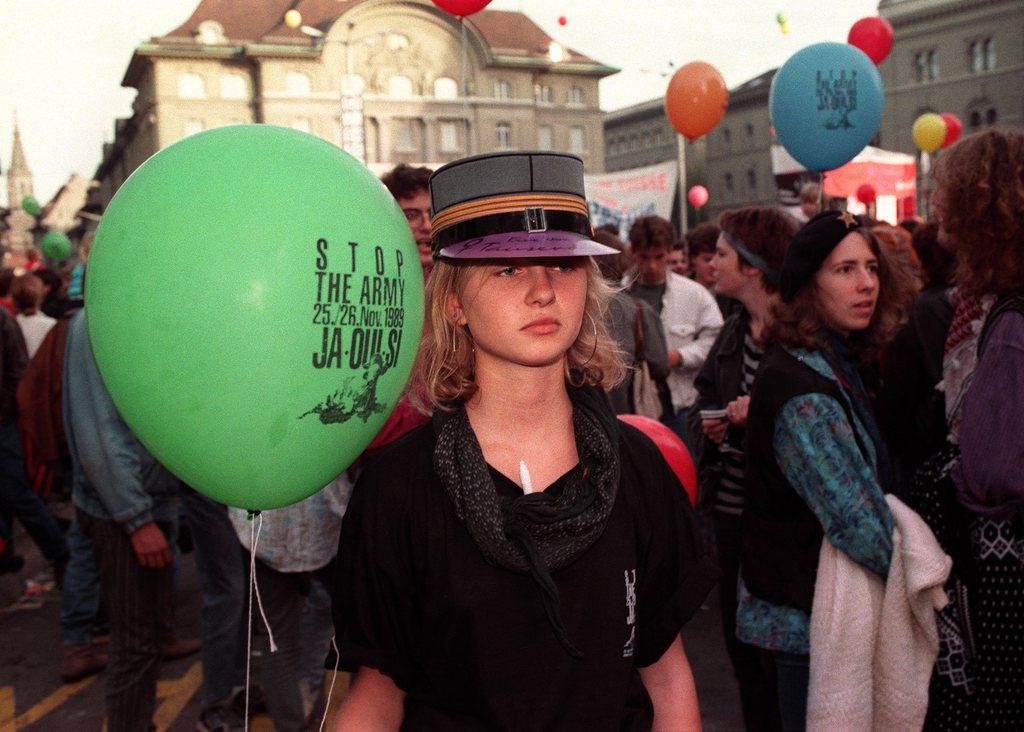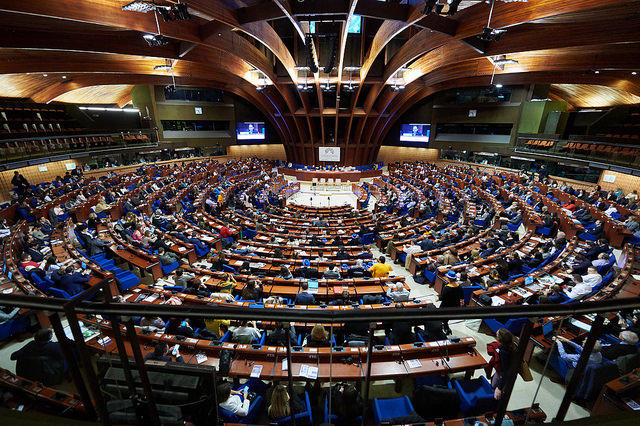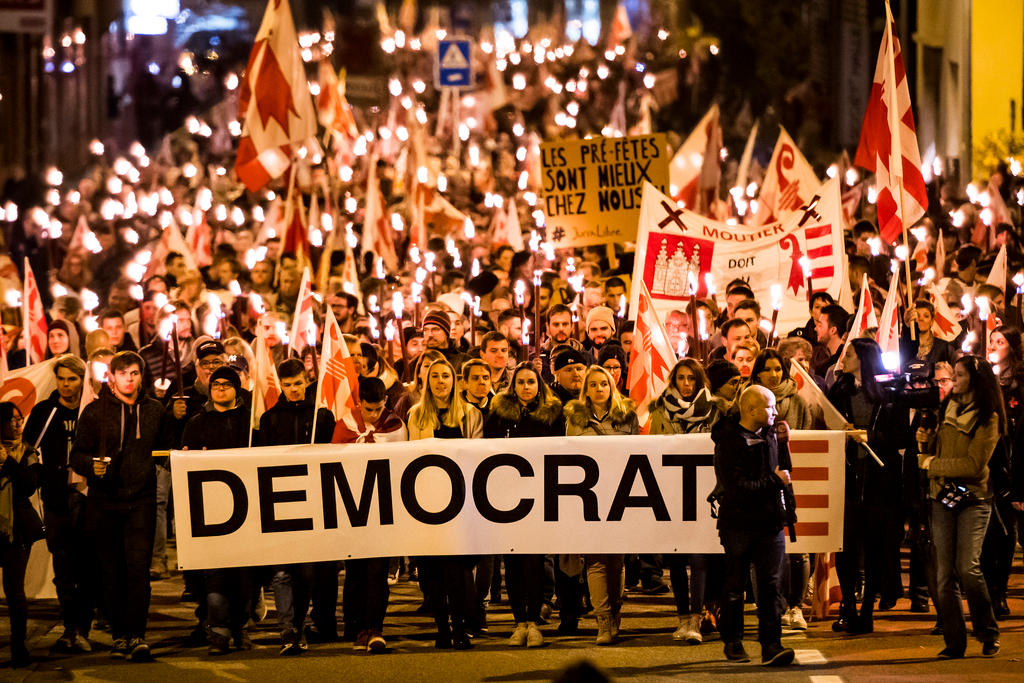Left behind and locked out of Swiss democracy

Democracy bases its legitimacy on the promise to adequately and appropriately represent the population. However, a look at Switzerland’s system reveals some shortcomings: women, young people, foreigners and the low-qualified are often absent from political institutions.
#Dear Democracy
This text is part of #DearDemocracy, a platform on direct democracy issues, by swissinfo.ch. The views expressed in this article are solely those of the author, and do not necessarily reflect the views of swissinfo.ch.
Democratic rights don’t fall from the sky. They are the achievement of brave people who demanded and fought for political rights for themselves and for their fellow citizens.
Such efforts fighting for equality were also seen in Switzerland. Almost 100 years ago, the social and political situation in the country was explosive, and many were dissatisfied with living and working conditions; factory workers, in particular, felt politicians had abandoned them.
This resulted in a massive, if temporary, boost for the socialist workers’ movement, fanning the class struggle in Switzerland. And through coordinated strikes and protests, workers challenged the political elite, forcing them to make concessions.
Although many demands remained unfulfilled, the workers notched up some sweeping successes. One was the introduction in 1919 of proportional representation, a historic change of the political system that meant the 200 seats in the House of Representatives would henceforth be allocated according to the strength of the parties.
Concretely, the turning away from the first-past-the-post system meant the end of the Free Democratic Party’s domination, and twice as many seats for the Social Democratic Party.
As a result, voters of competing parties who had been disadvantaged for a long time by the electoral system were represented appropriately in the House of Representatives, and political tensions de-escalated.
Universal suffrage?
A further demand of the workers’ movement was female suffrage. But this was dismissed by the (men) in power at the time. Indeed, it wasn’t until 1971 that men decided to give the female half of the population a political say. And so for some 123 years Swiss women were not so much politically underrepresented as non-existent.
Even today women are massively underrepresented on political committees, as the following graph shows:
That said, in the almost 50 years since Swiss women got the vote, female representation has improved considerably, and the proportion of women in political roles continues to increase.
But all is relative. Extrapolating the trend indicates that it will take another 50 years until women are adequately represented according to their proportion of the population.
And for many that’s too long. Alliance F, the Swiss umbrella organisation for women’s associations, last year demanded a quota for women in the seven-person Federal Council (the Swiss government) so that “half of the population feels suitably represented”. A few years ago women were actually in the majority in the government, which now comprises three womenExternal link.
The word “feel” is central here. It expresses the idea that what’s in question are big principles like justice, equality and recognition, which in the view of those concerned are not properly observed.

More
Every three months, a revolution
Quotas – a solution to unequal representation?
One possible idea as effective as it is controversial is that of quotas, which impose strict targets for the minimum representation of groups and penalties when the targets are not met.
However, quotas raise two problems when it comes to political elections. First, a “free” vote is curtailed; second, and more subtly, quotas ignore the fact that a representative of any gender, age or occupation can in theory ensure a fair representation of all interests.
Other possibilities include requiring parties to actively promote female candidates, while the introduction of voting rights for foreigners would presumably lead to change. Another long-term approach is through improved education about political and civic rights.
A young cashier with a migration background?
However, women are not the only societal group underrepresented in Swiss political institutions. Although under 40-year-olds make up some 45% of Swiss citizens, just 13% of parliamentarians come from this age group.
Less-educated people, with badly paid jobs, also rarely find a path into parliament, while foreigners, who make up about a quarter of the entire Swiss population, are also absent. (The fact that foreigners have little or no voting rights is a factor here.)
It’s no coincidence that these politically underrepresented groups also vote less, are on fewer executive boards and are only rarely seen in leadership roles in society. Political, economic and social power is concentrated within tightly connected networks; the distribution of power follows its own logic, rather than being randomly or fairly distributed through society.
Of course, like any other societal ideal, perfect democracy can only ever be aspired to. But this does not mean that we should be fatalistic about the status quo. History shows us that a fair sharing of power, equal voices and equal rights are not simply handed out like sweets, but it takes courage, perseverance and debate to make them a reality.
Downsides of Swiss democracy
Switzerland ranks first internationally as regards the number of popular votes held. But even with its world record of 620 national votes (as of 2017), model democracy Switzerland is far from perfect.
The author studied political science at the University of Zurich and operates a blog on political life in SwitzerlandExternal link (in German).
Adapted from German by Thomas Stephens, swissinfo.ch

In compliance with the JTI standards
More: SWI swissinfo.ch certified by the Journalism Trust Initiative











You can find an overview of ongoing debates with our journalists here . Please join us!
If you want to start a conversation about a topic raised in this article or want to report factual errors, email us at english@swissinfo.ch.